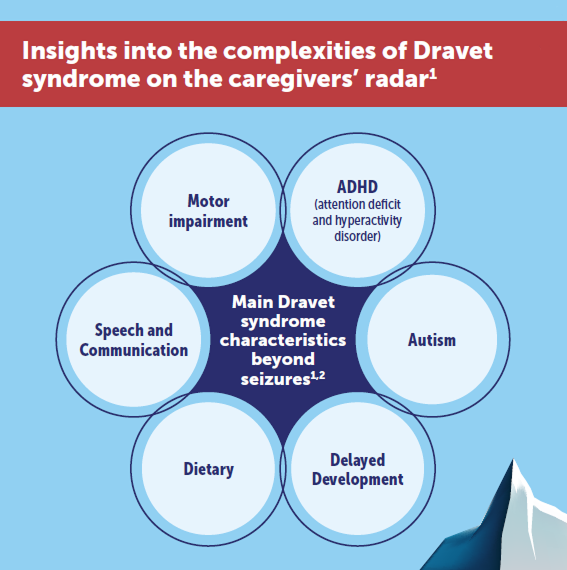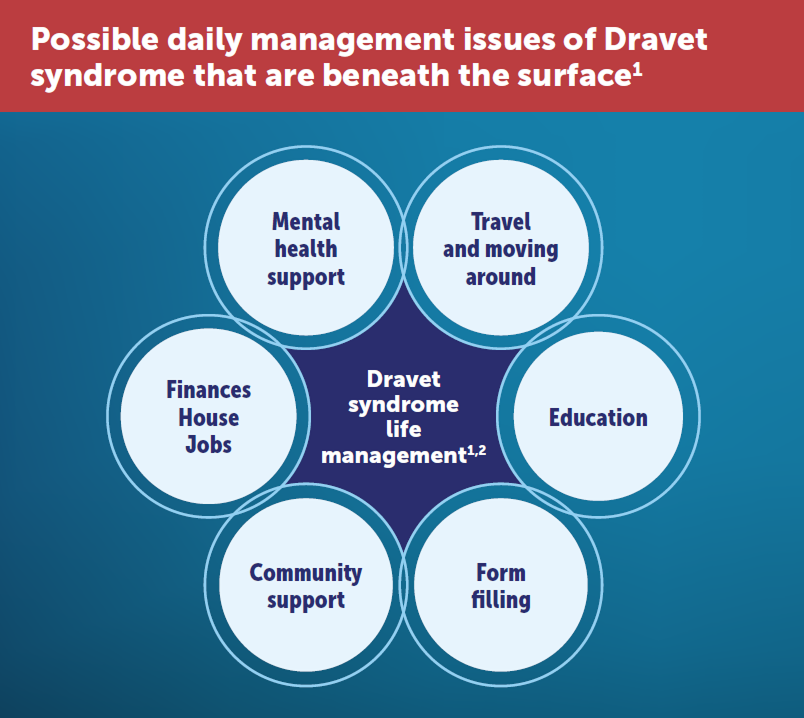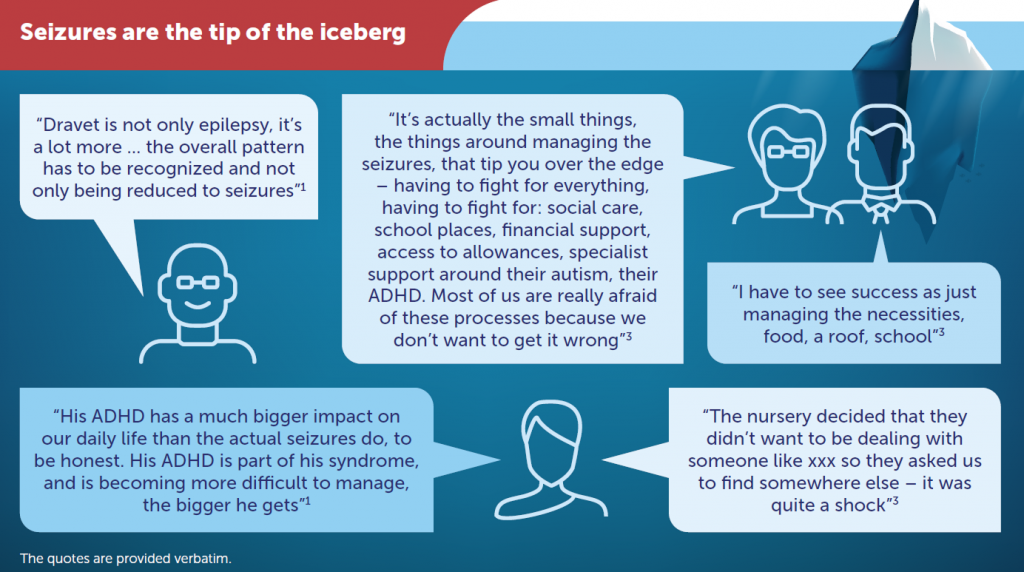Key insights for healthcare professionals (HCPs) to improve clinical conversations with caregivers and enhance their engagement in treatment decisions.
A qualitative study analysing caregiver interviews indicates that if you meet a Dravet syndrome caregiver who is resistant to treatment change, these are the potential reasons:1
- Wider priorities beyond seizure control and a feeling these are not being acknowledged.
- Anxiety that they are not achieving the balance that is right for their child and for their family in the current treatment pathway.
- Anxiety from past negative experiences early in the treatment journey associated with the diagnosis experience.

Addressing these anxieties with caregivers can unlock the treatment conversation.
The qualitative study analysing caregiver interviews showed that there are opportunities to:¹
- Extend the consultation beyond seizures
- Reset past negative experiences
- Bring about shared decision-making

With Dravet syndrome, seizures are only the tip of the iceberg; caregivers are juggling many additional issues below the surface¹
At diagnosis: Neurologists and caregivers both focus on seizure management¹. Over time, caregivers’ focus evolves to considering competing priorities, some to do with the syndrome characteristics, some to do with the stresses of simply managing daily life¹.
Caregivers reported that the importance of balancing all these broader issues was not fully understood or acknowledged by their HCP, who they felt remained primarily focused on seizure control¹.
- Caregivers want their concerns about side effects, particularly worsening developmental delay, to be heard, in order to achieve a treatment pathway that balances their priorities¹.
- Caregivers expressed feelings of anxiety/stress and lack of trust in HCPs and the healthcare system due to previous negative experiences (diagnosis journey or side effects of early treatments)¹,³.
Building trust with the caregiver is a gamechanger in the treatment conversation¹
- Caregivers need to hear that their HCP understands the multiple pressures and competing priorities they juggle, both syndrome and life management. This acknowledgement is important to them¹.
- Caregivers want a holistic discussion about treatment plans that goes beyond seizures and clinical outcomes. For them, it is all about balance, and their broader needs for both their child with Dravet syndrome and their family¹.
- Caregivers reported that when their child’s treating physician showed compassion and empathy for their situation; this could help heal past negative experiences and create an opportunity to ‘reset’ their trust in the healthcare system¹,³
References
¹Luker J and Fisher K. 2022. AES Annual Meeting. Poster 467
² Anwar A., et al. Cureus. 2019; 11:e5006
³ UCB data on file. 2021. Qualitative study analysing caregiver interviews
This qualitative study was funded and conducted on behalf of UCB Biopharma SRL.
© UCB Biopharma SRL, 2023. All rights reserved.
Date of preparation: November 2023
EU-DA-2300001
FIN0065







